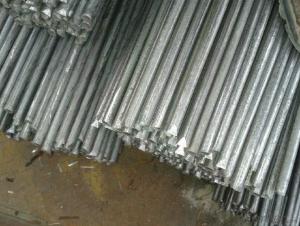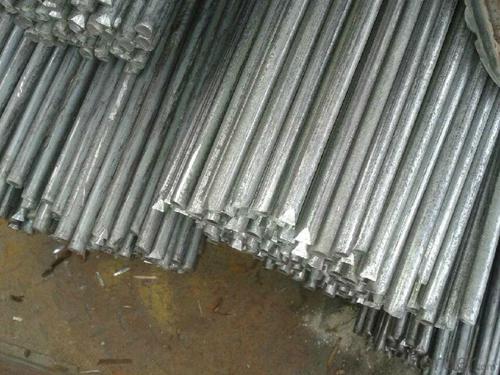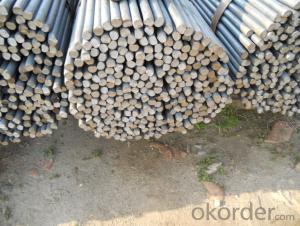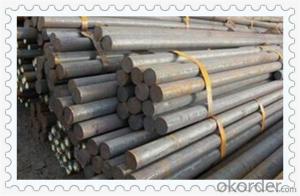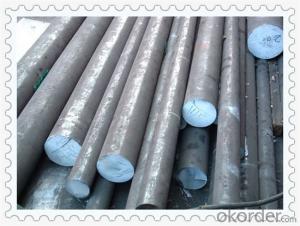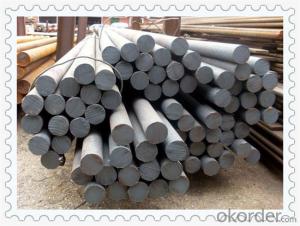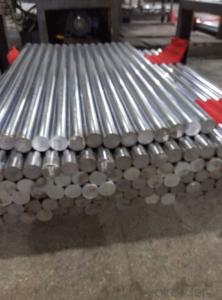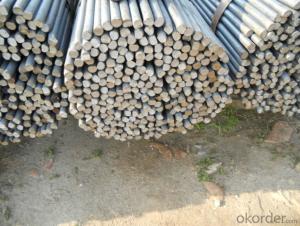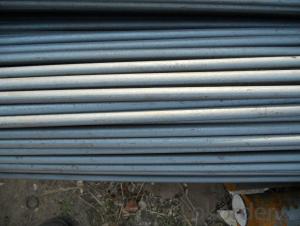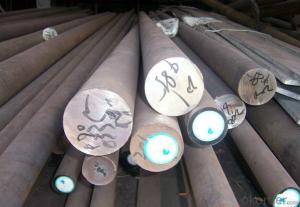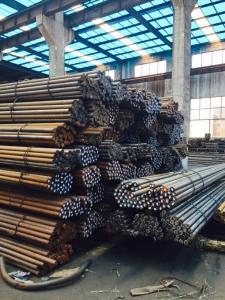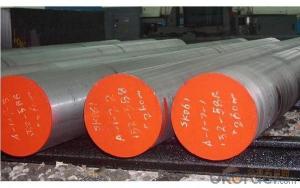Round Bar Chromed Steel Round Bar-Steel Round Bar S45C
- Loading Port:
- Tianjin
- Payment Terms:
- TT OR LC
- Min Order Qty:
- 25 m.t.
- Supply Capability:
- 20000 m.t./month
OKorder Service Pledge
OKorder Financial Service
You Might Also Like
Specification
Product Description:
OKorder is offering High quality Round Bar Chromed Steel Round Bar-Steel Round Bar S45C at great prices with worldwide shipping. Our supplier is a world-class manufacturer of steel, with our products utilized the world over. OKorder annually supplies products to European, North American and Asian markets. We provide quotations within 24 hours of receiving an inquiry and guarantee competitive prices.
Product Applications:
Round Bar Chromed Steel Round Bar-Steel Round Bar S45C are ideal for structural applications and are widely used in the construction of buildings and bridges, and the manufacturing, petrochemical, and transportation industries.
Product Advantages:
OKorder's Round Bar Chromed Steel Round Bar-Steel Round Bar S45C are durable, strong, and resist corrosion.
Main Product Features:
· Premium quality
· Prompt delivery & seaworthy packing (30 days after receiving deposit)
· Corrosion resistance
· Can be recycled and reused
· Mill test certification
· Professional Service
· Competitive pricing
Product Description:
1. Material: Alloy structural steels, carbon structure steels, alloy tool and model steels,etc.
2. Process: EAF + LF + VD + Forged + Heat Treatment (optional)
3. Delivery condition:Hot forged +Rough machined (black surface after Q/T)+ Turned (optional)
4.Technical Data: Chemical Composition, Physical Properties and Mechanical Testing.
FAQ:
Q1: How soon can we receive the product after purchase?
A1: Within three days of placing an order, we will begin production. The specific shipping date is dependent upon international and government factors, but is typically 7 to 10 workdays.
Q2: What makes stainless steel stainless?
A2: Stainless steel must contain at least 10.5 % chromium. It is this element that reacts with the oxygen in the air to form a complex chrome-oxide surface layer that is invisible but strong enough to prevent further oxygen from "staining" (rusting) the surface. Higher levels of chromium and the addition of other alloying elements such as nickel and molybdenum enhance this surface layer and improve the corrosion resistance of the stainless material.
Q3: Can stainless steel rust?
A3: Stainless does not "rust" as you think of regular steel rusting with a red oxide on the surface that flakes off. If you see red rust it is probably due to some iron particles that have contaminated the surface of the stainless steel and it is these iron particles that are rusting. Look at the source of the rusting and see if you can remove it from the surface.
Images:
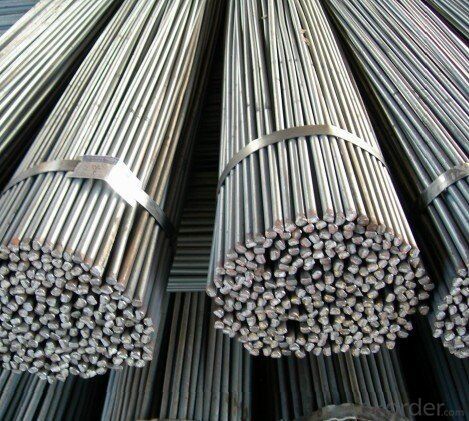
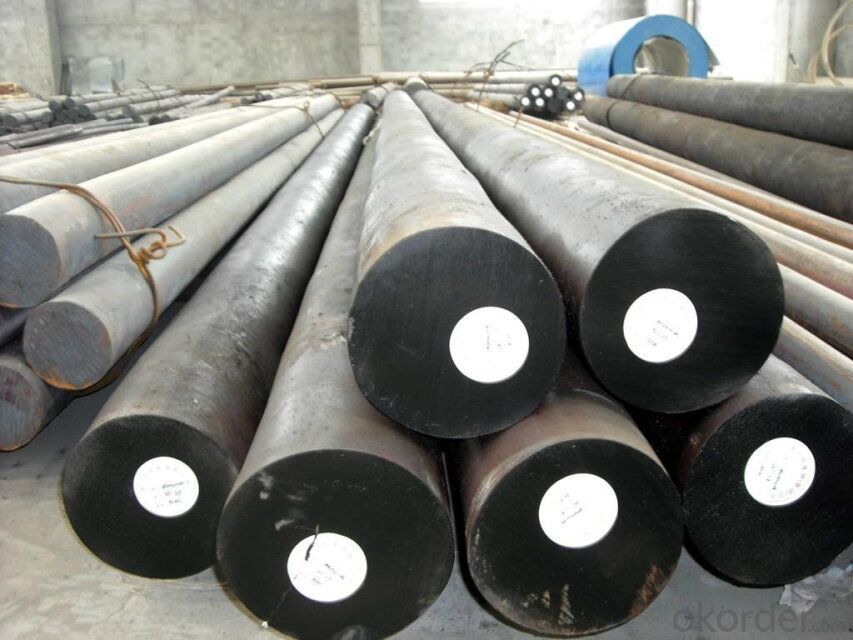
- Q: Can steel round bars be used for making steering linkages?
- Yes, steel round bars can be used for making steering linkages. Steel round bars are commonly used in various mechanical applications due to their strength and durability. They offer the necessary stability and rigidity required for steering linkages, making them a suitable choice for this purpose.
- Q: What are the advantages of using nickel-chromium-molybdenum alloy steel round bars?
- Nickel-chromium-molybdenum alloy steel round bars offer numerous benefits: 1. Exceptional strength and durability: These round bars possess outstanding mechanical properties, including high tensile strength and hardness. As a result, they are ideal for applications that demand robust and long-lasting materials. 2. Enhanced resistance to corrosion: The inclusion of nickel and chromium in the alloy steel composition improves its ability to withstand corrosion. This makes it suitable for use in environments exposed to harsh chemicals or moisture. Consequently, the lifespan of these round bars is extended, reducing the need for frequent replacements. 3. Impressive heat resistance: Nickel-chromium-molybdenum alloy steel round bars can endure high temperatures without compromising their structural integrity. This makes them well-suited for applications involving extreme heat, such as the manufacturing of boilers, heat exchangers, and other heat-resistant equipment. 4. Versatility in fabrication: These round bars can be easily machined and fabricated, enabling the production of various shapes and sizes. This versatility makes them applicable across a wide range of industries, including aerospace, automotive, oil and gas, and construction. 5. Resistance to fatigue: The alloy composition of nickel-chromium-molybdenum steel enhances its resistance to fatigue, making it ideal for applications subjected to cyclic loading or repeated stress. This ensures that the round bars can withstand prolonged use without experiencing fatigue failure. 6. Excellent weldability: Nickel-chromium-molybdenum alloy steel round bars exhibit good weldability, facilitating easy joining or fabrication processes. This makes them suitable for applications that require welding or other forms of joining, providing flexibility in design and construction. In conclusion, the advantages of nickel-chromium-molybdenum alloy steel round bars make them a preferred choice in industries where strength, durability, corrosion resistance, heat resistance, versatility, fatigue resistance, and weldability are crucial factors for success.
- Q: What is the difference between the heat treatment of cold drawn round steel and the heat treatment of wrought round steel?
- Solution treatment: the alloy can be dissolved in various phases, strengthening solid solution, improving toughness and corrosion resistance, eliminating stress and softening, so as to continue processing and forming.
- Q: How are steel round bars tested for tensile strength?
- Steel round bars are tested for tensile strength through a process called tensile testing. This involves pulling the bar until it breaks, while measuring the amount of force applied. The results are then used to determine the maximum load the bar can withstand before fracturing, providing an indication of its tensile strength.
- Q: What are the advantages of using wear-resistant steel round bars?
- Wear-resistant steel round bars offer numerous benefits: 1. Enhanced durability: These round bars are specifically designed to withstand high levels of abrasion and wear. They have a high hardness level, which makes them resistant to surface damage caused by friction, impact, or scraping. As a result, their lifespan is extended, reducing the need for frequent replacements. 2. Increased strength: Wear-resistant steel round bars possess exceptional strength properties, allowing them to withstand heavy loads and extreme conditions. This makes them suitable for various applications in industries like mining, construction, manufacturing, and transportation, where strength and resilience are crucial. 3. Improved safety: By using wear-resistant steel round bars, a safer working environment is ensured. Their high resistance to wear minimizes the risk of accidents and injuries caused by equipment failures or structural damage. This is particularly important in industries involving heavy machinery, tools, or structures. 4. Cost-effectiveness: Although wear-resistant steel round bars may have a higher initial cost compared to regular steel bars, their extended lifespan and reduced maintenance requirements make them a cost-effective choice in the long run. The reduced need for replacements and repairs leads to lower downtime, increased productivity, and ultimately, decreased operational costs. 5. Versatility: Wear-resistant steel round bars can be used in a variety of applications due to their versatility. They can be easily machined, welded, or formed into different shapes and sizes to meet specific requirements. This flexibility allows for their use in various industries and applications, making them an ideal choice for many projects. To sum up, the advantages of using wear-resistant steel round bars include enhanced durability, increased strength, improved safety, cost-effectiveness, and versatility. These properties make them a reliable and efficient option for applications where wear and tear are significant concerns.
- Q: What are the different types of steel round bar finishes?
- There are several different types of steel round bar finishes available, each with its own unique properties and benefits. Some common types of steel round bar finishes include: 1. Hot Rolled: This finish is achieved by heating the steel to a high temperature and then rolling it while it is still hot. Hot rolled steel round bars have a rough surface and a blue-grey color. This finish is commonly used for structural applications where aesthetics are not a priority. 2. Cold Rolled: In contrast to hot rolled steel, cold rolled steel round bars are processed at room temperature. This results in a smoother surface and tighter dimensional tolerances. Cold rolled steel round bars are often used in applications that require a more polished look or where precise measurements are essential. 3. Turned and Polished: This finish involves removing the outer layer of the steel round bar through a process called turning. After turning, the bar is polished to achieve a smooth and shiny surface. Turned and polished steel round bars are commonly used in decorative applications or where a high-quality appearance is desired. 4. Ground: Ground steel round bars undergo a grinding process to remove imperfections and achieve a smooth, uniform surface. This finish is often used when tight tolerances and precise measurements are required, such as in machine parts or tools. 5. Chrome Plated: Chrome plating involves applying a layer of chromium onto the surface of the steel round bar. This finish provides enhanced corrosion resistance and a lustrous appearance. Chrome plated steel round bars are frequently used in applications where the material will be exposed to moisture or harsh environments. 6. Galvanized: Galvanizing is the process of coating steel with a layer of zinc to protect it from corrosion. Galvanized steel round bars have a characteristic silver appearance and are commonly used in outdoor applications or environments where rust is a concern. These are just a few examples of the different types of steel round bar finishes available. The choice of finish will depend on the specific requirements of the application, such as aesthetics, corrosion resistance, or dimensional tolerances.
- Q: Can steel round bars be used for making heat exchangers?
- Yes, steel round bars can be used for making heat exchangers. Steel is a commonly used material in heat exchangers due to its excellent thermal conductivity, high strength, and resistance to corrosion. Steel round bars can be easily machined and shaped to meet the specific requirements of a heat exchanger design. Additionally, steel is readily available and cost-effective, making it a popular choice for manufacturing heat exchangers in various industries. However, it is important to consider the specific application and operating conditions of the heat exchanger to ensure that the chosen steel grade is compatible and can withstand the required temperature and pressure.
- Q: Can steel round bars be used for pump shaft applications?
- Yes, steel round bars can be used for pump shaft applications. Steel round bars are often chosen for pump shafts due to their high strength, durability, and resistance to corrosion. Additionally, steel round bars can be easily machined and provide excellent surface finish, making them suitable for various pump shaft applications.
- Q: Are steel round bars suitable for the production of crankshafts?
- Yes, steel round bars are suitable for the production of crankshafts. Steel round bars are commonly used in the manufacturing of crankshafts due to their high strength and durability. Crankshafts need to withstand high levels of stress and load during engine operation, and steel round bars offer the necessary mechanical properties to handle these conditions. Steel round bars can be forged or machined into the desired shape and dimensions required for crankshaft production. Additionally, steel is known for its excellent fatigue resistance, which is crucial for crankshafts as they undergo cyclic loading. Overall, steel round bars are a suitable and widely accepted material for the production of crankshafts in various industries, including automotive and engineering.
- Q: What is the difference between carbon steel and stainless steel round bars?
- The main difference between carbon steel and stainless steel round bars lies in their composition. Carbon steel round bars are primarily made of iron and carbon, while stainless steel round bars contain iron, carbon, and at least 10.5% chromium. This chromium content in stainless steel gives it its characteristic resistance to corrosion and staining, making it suitable for various applications in industries such as construction, automotive, and food processing. On the other hand, carbon steel round bars are generally stronger and more durable but lack the corrosion resistance of stainless steel.
Send your message to us
Round Bar Chromed Steel Round Bar-Steel Round Bar S45C
- Loading Port:
- Tianjin
- Payment Terms:
- TT OR LC
- Min Order Qty:
- 25 m.t.
- Supply Capability:
- 20000 m.t./month
OKorder Service Pledge
OKorder Financial Service
Similar products
Hot products
Hot Searches
Related keywords
